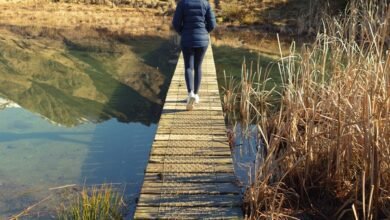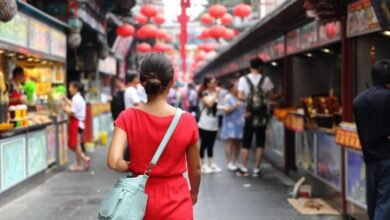Tourism is the hardest-hit industry because of the coronavirus pandemic. The technological revolution in the tourism industry brought us closer by making travel easy and affordable but, the pandemic halted these trips and crippled a trillion-dollar industry within a year.
However, now that the pandemic has slowed down, several countries are lifting and relaxing strict restrictions, allowing travelers to enter. Airlines, hotels, restaurants, and other public areas are ensuring that all their customers follow the COVID-related safety protocols as outlined by the WHO to minimize the spread of further infection.
The travel industry is expected to bounce back as more people choose to travel again. Even though it is safer to stay at home to protect yourself, you should follow some vital travel hacks to keep yourself safe if you decide on a mini-vacation.
In this article, we will discuss some travel hacks to keep you safe in this post-pandemic world.
In this article
1. Research your destination
It is recommended to thoroughly gather information regarding the destination you are traveling to before confirming your trip. It includes researching the necessary requirements for entering a country or city. The basic requirement is to look for and book a clean and affordable hotel that follows all Corona safety protocols.
If you are planning a trip to the mountainous town of Gatlinburg in Tennessee, then cabin rentals in Gatlinburg TN are an excellent lodging option. They offer beautiful rental cabins in the mountains and ensure a safe trip for you by following all the COVID-related protocols.
Moreover, you should also be aware of the coronavirus cases in the area you are traveling to and observe the case trajectory to avoid going to places with increasing cases.
Research the travel requirements like coronavirus test results, vaccine certificates, and other documents required by your airline because each company has its own set of requirements. Additionally, every country accepts a different vaccine. Therefore, it is recommended to check the requirements of the place you plan to travel to. Doing proper research and booking hotels, vehicles, and guides beforehand can save you a lot of headaches during the trip.
2. Go digital
Going digital reduces the need to touch different surfaces like documents, money, and more. As the coronavirus can spread through touch, going digital will reduce your chances of coming in contact with the virus. For example, keep your digital wallet full and try to make digital payments throughout the trip. Avoid using cash as it can easily carry the virus and infect you. Moreover, keep scanned copies of your travel documents on your phone instead of hard copies. Show these documents, when asked, to the staff from a distance.
A digital wallet can also protect you from pickpockets. Scanned copies of necessary documents are safer in digital form as there are fewer chances of losing or misplacing them. Digital payments and documents reduce your chances of contracting the virus.
3. Pack smartly
Pack smartly according to the place you are traveling to. Consider investing in a suitcase with compartments to pack and unpack within minutes. Try to keep your luggage light and only pack the absolutely necessary items. For example, if you are traveling to a cold destination, pack thermal base layers instead of coats to save space in the suitcase.
Pack essential medicine to deal with fever and other such symptoms and a first-aid kit to deal with minor cuts and bruises. Pack your toiletries in a small separate bag and avoid using hotel products to protect yourself from the virus.
4. Avoid bottleneck days
It is recommended to travel to places that are not crowded. However, if you plan to travel to a crowded destination, avoid bottleneck days—days when your chosen location is overcrowded, exposing you to higher risks of infection.
Every place and even airports can have days when they get more people than others. For example, the airports and outdoor restaurants become busy around Valentine’s Day. Therefore, identify and avoid traveling or vision a place during bottleneck days.
5. Take Necessary Precautions
Even though the pandemic has slowed down, it is advised to follow general precautions to minimize the chances of infection as much as possible. Some vital precautions are as follows;
6. Always wear a mask
Wear a mask at all times during traveling, especially when you are on a plane or in a public area. Always carry extra masks, and only remove them for eating or drinking.
7. Carry your own cutlery
Carry your own bottle, straw, spoon, and other basic cutlery items. Sustainable and easy-to-carry cutlery options are available for travelers. You should use your own cutlery in restaurants as well.
8. Keep a sanitizer
A sanitizer is a must-have when traveling. Keep a small bottle with you at all times. Sanitize your hands after touching any surface. Moreover, carry sanitizing wipes for extra precaution.
9. If symptoms appear, isolate
If COVID symptoms appear while you are traveling, inform all the concerned people like your hotel staff and people you came in contact with. It is recommended to isolate yourself immediately to stop the spread. You should follow the isolation guidelines of the area you are in.
The Wrap Up
The travel industry suffered a lot due to the pandemic. However, now countries are opening borders and relaxing restrictions prompting more people to travel. It will help the tourism industry to bounce back. However, all travelers are recommended to follow some crucial travel guidelines to stay safe during the trip.
The first hack to avoid getting sick is researching the destination you are planning to travel to and avoiding traveling to areas with increasing cases. Moreover, book a reputable hotel that follows all COVID-19 safety protocols.
Go digital to avoid unnecessary contact with several surfaces and pack smartly. Also, avoid rush hours or overcrowded days of travel. Lastly, follow general precautions like wearing a mask, isolating in case of infection, sanitizing, and carrying your own cutlery. Hopefully, this article has informed you about the vital travel hacks to help you stay safe while traveling post-pandemic.







